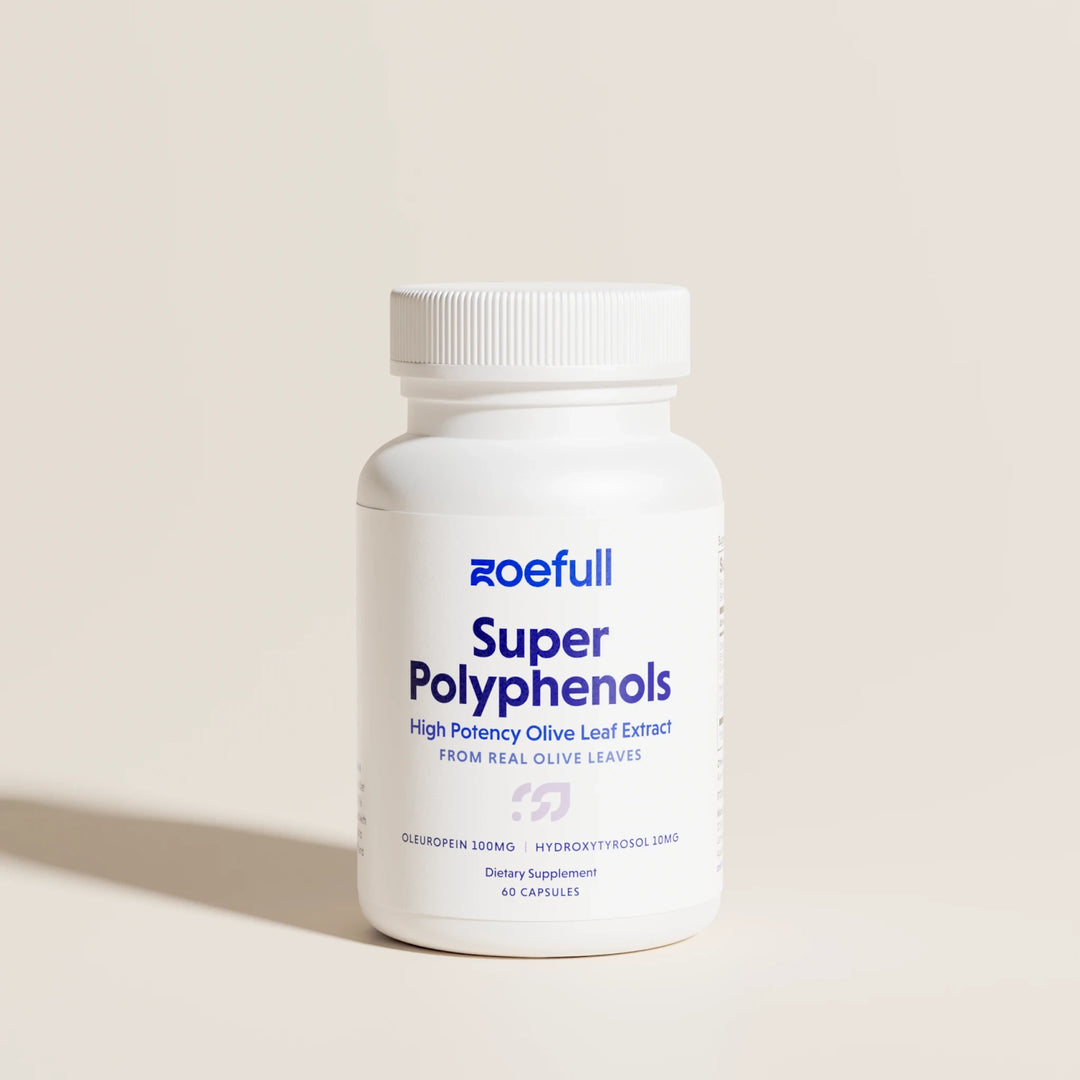Are food supplements good for inflammation
Short answer: Yes, they are! Not only do food supplements help, it is often necessary to use supplementation in order to reduce inflammation in the body. Read further to find out more.
At a Glance
- Chronic inflammation underlies many diseases, from arthritis and heart disease to diabetes.
- Supplements can offer a safe, effective option to fight inflammation.
- Omega-3s, polyphenols, probiotics, curcumin, and herbal supplements have strong scientific backing.
- Mediterranean-based supplements like high-quality high-phenolic olive oils are potent anti-inflammatory agents.
Abbreviations
- COX: Cyclooxygenase
- CRP: C-reactive Protein
- DHA: Docosahexaenoic acid
- EGCG: Epigallocatechin gallate
- EPA: Eicosapentaenoic acid
- EVOO: Extra Virgin Olive Oil
- IL: Interleukin
- LOX: Lipooxygenase
- NF-κB: Nuclear Factor kappa-light-chain-enhancer of activated B cells
- TNF-α: Tumor Necrosis Factor alpha
Introduction
Chronic inflammation is increasingly recognized as a central factor in numerous chronic diseases, including arthritis, cardiovascular disorders, diabetes, Alzheimer’s disease, and autoimmune conditions. While acute inflammation is part of the body's natural defense mechanism, prolonged inflammation can damage tissues and lead to serious health problems — even though its initially “benign” symptoms are often overlooked, ignored, or misdiagnosed. Thankfully, scientific research has uncovered several natural supplements that can safely and effectively modulate inflammation and improve overall health.
In this article, we'll explore the top 10 science-backed supplements to help you effectively manage inflammation and lead a healthier life.
1. High-phenolic Olive Oils
Olive oils, particularly high-quality extra virgin varieties rich in polyphenols (like our Wild Olive Oil and Extra Virgin Olive Oil), are renowned for their potent anti-inflammatory compounds, including oleocanthal and hydroxytyrosol. These polyphenols have been scientifically demonstrated to inhibit inflammation-causing enzymes like COX and LOX, and to reduce inflammatory cytokines (IL-6, TNF-α). Regular consumption of high-quality, high-phenolic EVOO is associated with reduced risk of chronic diseases such as cardiovascular disorders and arthritis.
Moreover, clinical trials suggest that just two tablespoons daily can significantly reduce inflammatory markers and offer cardiovascular protection similar to conventional anti-inflammatory medications, without adverse side effects.
Cool Fact: Oleocanthal in olive oil provides a peppery taste and acts similarly to ibuprofen.
2. Omega-3 fatty acids
Omega-3 fatty acids, particularly EPA and DHA, actively facilitate the resolution of inflammation by generating specialized molecules called resolvins and protectins. Numerous clinical studies highlight their ability to alleviate joint pain, decrease stiffness, and even improve cardiovascular health.
The typical Western diet often lacks sufficient omega-3s, making supplementation crucial. Regular intake of omega-3 supplements or fatty fish like salmon can dramatically improve inflammatory profiles and overall health outcomes.
Mini Biohack: Aim for a low omega-6/omega-3 ratio to significantly reduce systemic inflammation.
3. Resveratrol
Resveratrol, a polyphenol found in grapes, berries, and peanuts, effectively mimics caloric restriction, which is known for its anti-inflammatory, anti-inflammaging, and longevity benefits. This compound notably reduces pro-inflammatory cytokines and downregulates key inflammatory pathways (such as NF-κB), helping combat chronic inflammation at the molecular level.
Clinical trials support resveratrol's efficacy in reducing inflammation associated with aging, metabolic syndrome, arthritis, and cognitive decline, making it an essential addition to an anti-inflammatory regimen.
4. Probiotics
The gut microbiome significantly impacts inflammation, and probiotics have emerged as powerful modulators of gut health and systemic inflammation. Strains like Lactobacillus and Bifidobacterium enhance microbiome diversity, strengthen gut barrier integrity, and lower inflammatory markers such as CRP and cytokines.
Probiotics are especially beneficial for gastrointestinal disorders, but their effects extend to immune health and even metabolic conditions. Incorporating probiotics consistently into your routine promotes sustained anti-inflammatory benefits.
5. Olive Leaf Extract
Olive leaf extract (such as our Super Polyphenols), rich in potent polyphenols such as oleuropein and hydroxytyrosol, is effective in regulating immune response and reducing oxidative stress. It notably reduces the production of inflammatory mediators, offering cardiovascular, immune, and metabolic benefits.
Beyond inflammation control, olive leaf extract has demonstrated antiviral and antimicrobial properties, supporting comprehensive immune health.
Cool Fact: Oleuropein can inhibit viral replication, offering dual benefits in inflammation and immunity.
6. Curcumin
Curcumin, derived from turmeric, is a polyphenol that has powerful anti-inflammatory properties, comparable to NSAIDs, but without side effects. However, standard curcumin has poor bioavailability, necessitating enhanced formulations, often combined with black pepper extract (piperine).
Clinical trials confirm that bioavailability-enhanced curcumin significantly reduces systemic inflammation, joint pain, and inflammatory markers, making it a strong natural alternative for managing chronic inflammation.
7. Vitamin D (Cholecalciferol)
Vitamin D deficiency is increasingly common and linked with higher levels of inflammation. Supplementation with Vitamin D can effectively modulate immune response and reduce the production of pro-inflammatory cytokines.
Clinical evidence demonstrates substantial improvements in inflammatory markers with Vitamin D supplementation, especially in populations with low baseline levels, supporting its widespread use for inflammation management.
8. Ginger
Ginger contains powerful anti-inflammatory compounds like gingerol and shogaol, which inhibit inflammation similarly to pharmaceuticals. Extensive research has validated ginger's effectiveness in reducing pain and inflammation in conditions such as arthritis and muscular inflammation.
Consuming ginger regularly through diet or supplementation can provide ongoing relief from inflammation-driven pain and enhance overall health.
Mini Biohack: Daily ginger tea or smoothies can easily introduce ginger’s anti-inflammatory benefits into your lifestyle.
9. Green Tea Extract (EGCG)
Epigallocatechin gallate (EGCG), a prominent antioxidant in green tea, significantly reduces inflammation by blocking key inflammatory pathways. Clinical research confirms green tea extract's effectiveness in reducing inflammation markers and supporting metabolic health.
Regular consumption or supplementation can offer sustained anti-inflammatory effects, improving overall well-being and disease risk.
10. Garlic
Garlic, notably rich in allicin, is well-documented for its anti-inflammatory and anti-microbial capabilities, reducing critical inflammatory markers like TNF-α and IL-6. Garlic supplementation or dietary inclusion consistently improves inflammatory profiles, offering cardiovascular and metabolic health benefits.
Aged garlic extract, in particular, provides enhanced potency without the strong odor, making it a convenient option for consistent anti-inflammatory support.
Cool Fact: Garlic’s cardiovascular benefits complement its anti-inflammatory effects, offering comprehensive health support.
Take Action: Start Your Anti-Inflammatory Journey
Chronic inflammation is at the root of many common health conditions, from joint discomfort to metabolic syndrome. At Zoefull, we've crafted Mediterranean-inspired supplements to powerfully and naturally combat inflammation:
- Wild Olive Oil & Extra Virgin Olive Oil: Rich polyphenols for inflammation and cardiovascular support.
- Essential Omega-3s: Sustainably sourced omega-3 fatty acids (EPA & DHA) for joint and cardiovascular health.
- Resveratrol: Powerful polyphenol for longevity and reduced inflammation.
- Thriving Gut: Probiotics and prebiotics to balance gut health and lower inflammation.
- Super Polyphenols: Olive leaf extract for immune support and oxidative stress reduction.
Not sure where to start? Our Anti-Inflammation Bundles combine our most powerful supplements for easy, optimal support.
👉 Shop Anti-Inflammation Bundles
Start today, and embrace a healthier, inflammation-free life!
References
- Antiinflammatory Herbal Supplements. (2019). In A. Dasgupta, Translational Inflammation (pp. 69–91). Elsevier. https://doi.org/10.1016/b978-0-12-813832-8.00004-2
- Calder, P. C. (2017). Omega-3 fatty acids and inflammatory processes: From molecules to man. Biochemical Society Transactions, 45(5), 1105–1115. https://doi.org/10.1042/bst20160474
- Casas, R., Estruch, R., & Sacanella, E. (2018). The Protective Effects of Extra Virgin Olive Oil on Immune-mediated Inflammatory Responses. Endocrine, Metabolic & Immune Disorders Drug Targets, 18(1), 23–35. https://doi.org/10.2174/1871530317666171114115632
- Crespo, M., Tomé-Carneiro, J., Dávalos, A., & Visioli, F. (2018). Pharma-Nutritional Properties of Olive Oil Phenols. Transfer of New Findings to Human Nutrition. Foods, 7(6), 90. https://doi.org/10.3390/foods7060090
- Ferguson, J. J. A., Abbott, K. A., & Garg, M. L. (2021). Anti-inflammatory effects of oral supplementation with curcumin: A systematic review and meta-analysis of randomized controlled trials. Nutrition Reviews, 79(9), 1043–1066. https://doi.org/10.1093/nutrit/nuaa114
- Kuan, D. L. L. (2023). Effectiveness of High Fiber Multigrain Supplementation Among the Rheumatoid Arthritis Patients: A Randomized, Open Label Trial (Clinical Trial Registration No. NCT04033809). https://clinicaltrials.gov/study/NCT04033809
- Lu, K. (2016). Effect of a One Time Dose of Cholecalciferol on Serum Concentration of 25-Hydroxyvitamin D and Macrophages (Clinical Trial Registration No. NCT02920502). https://clinicaltrials.gov/study/NCT02920502
- Lund University. (2024). Effect of 6 Months Probiotic Supplement on Pain, Function, Quality of Life and Inflammation in Females With Knee Osteoarthritis: A Double-blinded Randomized Placebo-controlled Trial (Clinical Trial Registration No. NCT06459700). https://clinicaltrials.gov/study/NCT06459700
- Salas-Salvadó, J., Bulló, M., Babio, N., Martínez-González, M. Á., Ibarrola-Jurado, N., Basora, J., Estruch, R., Covas, M. I., Corella, D., Arós, F., Ruiz-Gutiérrez, V., Ros, E., & PREDIMED Study Investigators. (2011). Reduction in the incidence of type 2 diabetes with the Mediterranean diet: Results of the PREDIMED-Reus nutrition intervention randomized trial. Diabetes Care, 34(1), 14–19. https://doi.org/10.2337/dc10-1288
- Simopoulos, A. P. (2002). The importance of the ratio of omega-6/omega-3 essential fatty acids. Biomedicine & Pharmacotherapy, 56(8), 365–379. https://doi.org/10.1016/S0753-3322(02)00253-6
- Yahfoufi, N., Alsadi, N., Jambi, M., & Matar, C. (2018). The Immunomodulatory and Anti-Inflammatory Role of Polyphenols. Nutrients, 10(11), 1618. https://doi.org/10.3390/nu10111618























